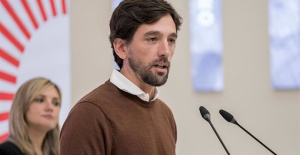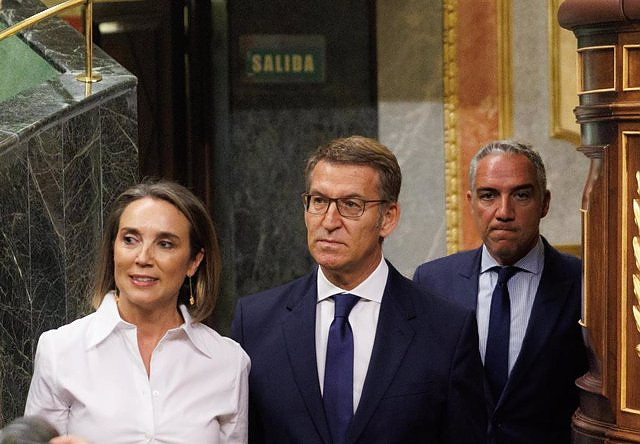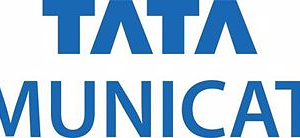'Génova' believes he is attracting Vox voters and is considering the profile of the spokesperson in Congress, for whom some ask for a "Doberman"
MADRID, 15 Oct. (EUROPA PRESS) -
The leader of the PP, Alberto Núñez Feijóo, has begun to rehearse a tough opposition to the acting head of the Executive, Pedro Sánchez, to corner him with the amnesty, a hypothetical pardon for those convicted by the ERE in Andalusia or the "division" within the Government after the Hamas attack. In fact, the PP leadership believes that it is attracting Vox voters with this strategy and reaffirms that it will maintain a "forceful" speech against the amnesty.
"There is a part of the electorate that sought forcefulness against Sánchez and sought it by voting for Abascal. But they have now realized that they can harm Sánchez by voting for Feijóo," sources from the national leadership of the PP have told Europa Press. who believe that the investiture speech marked a turning point when it came to visualizing the strength of the leader of the 'popular' in defense of the unity of the Spanish people.
In fact, other party sources believe that there has been a "turn" by Feijóo towards Santiago Abascal's party which, in his opinion, involves not "demonizing" Vox and counterattacking the PSOE's strategy of causing fear with the extreme right and similar to the PP due to its autonomous pacts.
These PP sources frame the words that Feijóo himself spoke this week when he said "I cannot accept the cordon sanitaire that has been placed on Vox", a message that they believe is on the right path to recover Vox voters who in Their day they supported the Popular Party.
"What the PSOE cannot say is that they do not speak with Vox when they do so with Bildu and the president of Vox was threatened by those who inspired Bildu. What anomaly is this in which they do not speak with Vox but they speak? with Bildu?", they ask from 'Génova'.
These days the 'popular' will exploit that photo of Sánchez shaking hands with Bildu's spokesperson in Congress, Mertxe Aizpurua, in the framework of contacts for his investiture. "All that was left was to say 'Let them kiss, let them kiss' or 'Long live the bride and groom' like at weddings," they say ironically at the 'popular' headquarters.
Some sectors of the PP consulted by Europa Press consider that in the face of the "complex" legislature that lies ahead if Sánchez is sworn in as president, the party will need a parliamentary spokesperson with a "sharp" language to serve as a shield for Feijóo, who must focus on a role more state and institutional.
The sources consulted see the current Deputy Secretary of Institutional Affairs, Esteban González Pons, who was already parliamentary spokesperson in the Senate with José María Aznar, in that role, and believe that he fits that "Doberman profile" that the PP leader could seek for this legislature.
However, other voices do not rule out Cuca Gamarra herself - who has held that position for the last two years - or the deputy secretary of Culture and Open Society of the PP, Borja Sémper. The decision will not be announced by Feijóo until Sánchez's investiture is cleared.
The PP has made the foreseeable Amnesty Law its main battlefield against Sánchez, already activating an institutional and political front in Parliament - next Thursday the General Commission of the CCAA will meet to talk about the amnesty - but preparing also a judicial front with consultation with experts in the world of Law. In fact, Feijóo himself has advanced that he will take this rule to the Constitutional Court if it is approved.
A few weeks before the investiture, the PP will endlessly denounce Sánchez's "cessions" to the independentists to remain in Moncloa. Thus, they will repeat that the amnesty is a "fraud" and a "massive deception" that "breaks the equality of Spaniards", emphasizing that they must stop "lying" to the people and submit the amnesty to the polls.
To this offensive will be added a hypothetical pardon for those convicted by the ERE in Andalusia. The PP links the processing of the pardon for former Andalusian president José Antonio Griñán to the pressure to approve the Amnesty Law as soon as possible for those accused in the 'procés' and not have internal criticism in the Andalusian PSOE.
"Sánchez should leave it in writing that he will not provide pardons, amnesty or referendum. These are three very difficult issues for the Spanish people to defend and swallow," declared this week the general coordinator of the PP, Elías Bendodo.
And in the midst of the tension that exists in the Middle East, the PP will continue to focus on visualizing the lack of "unity" within its Government and its partners when it comes to condemning the Hamas attacks, and will focus on denouncing that Sánchez, unlike what has happened in other European countries, is not offering explanations in parliament.
In fact, last Friday Feijóo already criticized in a meeting with his colleagues from the European People's Party (EPP), that the acting head of the Executive had not informed Congress of the "dire situation" in Israel after the "terrorist attacks" of Hamas, especially when Spain holds the current Spanish Presidency of the EU.
For now, the Minister of Foreign Affairs, José Manuel Albares, is willing to go to Parliament to offer these explanations, an appearance that Feijóo's party considers insufficient since, in his opinion, the acting President of the Government should also correspond.
Furthermore, the PP will denounce that the president of Congress, the socialist Francina Armengol, continues without setting a date for Sánchez's investiture, a request that the 'popular' have strenuously demanded in the last ten days.
The Popular Group also wants to activate the Government control sessions in Congress and has formally requested this in a letter addressed to the Board and the Presidency of the Chamber to which Europa Press has had access.
In that document, signed by Gamarra, the 'popular' have demanded that "the organizational functions of the Congress contained in Title III of the Regulations be fulfilled" and have asked that the Congress Board "admit and order the processing of control and information initiatives, such as questions for oral response in plenary, interpellations or appearances that may arise".

 Exploring Cardano: Inner Workings and Advantages of this Cryptocurrency
Exploring Cardano: Inner Workings and Advantages of this Cryptocurrency Seville.- Economy.- Innova.- STSA inaugurates its new painting and sealing hangar in San Pablo, for 18 million
Seville.- Economy.- Innova.- STSA inaugurates its new painting and sealing hangar in San Pablo, for 18 million Innova.- More than 300 volunteers join the Andalucía Compromiso Digital network in one month to facilitate access to ICT
Innova.- More than 300 volunteers join the Andalucía Compromiso Digital network in one month to facilitate access to ICT Innova.-AMP.- Ayesa acquires 51% of Sadiel, which will create new technological engineering products and expand markets
Innova.-AMP.- Ayesa acquires 51% of Sadiel, which will create new technological engineering products and expand markets US Police storm Columbia University and arrest more than a hundred pro-Palestinian protesters
US Police storm Columbia University and arrest more than a hundred pro-Palestinian protesters The PP incorporates the former general secretary of Ciudadanos Adrián Vázquez in its list for the European elections
The PP incorporates the former general secretary of Ciudadanos Adrián Vázquez in its list for the European elections Gamarra (PP) accuses Sánchez of "an exercise in democratic degeneration" to "avoid being controlled by counterpowers"
Gamarra (PP) accuses Sánchez of "an exercise in democratic degeneration" to "avoid being controlled by counterpowers" The May 1 demonstration for full employment begins in Madrid
The May 1 demonstration for full employment begins in Madrid How Blockchain in being used to shape the future
How Blockchain in being used to shape the future Not just BTC and ETH: Here Are Some More Interesting Coins Worth Focusing on
Not just BTC and ETH: Here Are Some More Interesting Coins Worth Focusing on Ivace and promotes a less invasive device for the early detection of prostate cancer
Ivace and promotes a less invasive device for the early detection of prostate cancer Valencia unanimously approves the ordinance to allocate spaces to test innovative initiatives
Valencia unanimously approves the ordinance to allocate spaces to test innovative initiatives UPV researchers promote a paid master's degree as a "talent factory" in integrated photonics
UPV researchers promote a paid master's degree as a "talent factory" in integrated photonics A spin-off of the UV works on obtaining high-resolution 3D biomedical images in real time
A spin-off of the UV works on obtaining high-resolution 3D biomedical images in real time A million people demonstrate in France against Macron's pension reform
A million people demonstrate in France against Macron's pension reform Russia launches several missiles against "critical infrastructure" in the city of Zaporizhia
Russia launches several missiles against "critical infrastructure" in the city of Zaporizhia A "procession" remembers the dead of the Calabria shipwreck as bodies continue to wash up on the shore
A "procession" remembers the dead of the Calabria shipwreck as bodies continue to wash up on the shore Prison sentences handed down for three prominent Hong Kong pro-democracy activists
Prison sentences handed down for three prominent Hong Kong pro-democracy activists ETH continues to leave trading platforms, Ethereum balance on exchanges lowest in 3 years
ETH continues to leave trading platforms, Ethereum balance on exchanges lowest in 3 years Investors invest $450 million in Consensys, Ethereum incubator now valued at $7 billion
Investors invest $450 million in Consensys, Ethereum incubator now valued at $7 billion Alchemy Integrates Ethereum L2 Product Starknet to Enhance Web3 Scalability at a Price 100x Lower Than L1 Fees
Alchemy Integrates Ethereum L2 Product Starknet to Enhance Web3 Scalability at a Price 100x Lower Than L1 Fees Mining Report: Bitcoin's Electricity Consumption Declines by 25% in Q1 2022
Mining Report: Bitcoin's Electricity Consumption Declines by 25% in Q1 2022 Oil-to-Bitcoin Mining Firm Crusoe Energy Systems Raised $505 Million
Oil-to-Bitcoin Mining Firm Crusoe Energy Systems Raised $505 Million Microbt reveals the latest Bitcoin mining rigs -- Machines produce up to 126 TH/s with custom 5nm chip design
Microbt reveals the latest Bitcoin mining rigs -- Machines produce up to 126 TH/s with custom 5nm chip design Bitcoin's Mining Difficulty Hits a Lifetime High, With More Than 90% of BTC Supply Issued
Bitcoin's Mining Difficulty Hits a Lifetime High, With More Than 90% of BTC Supply Issued The Biggest Movers are Near, EOS, and RUNE during Friday's Selloff
The Biggest Movers are Near, EOS, and RUNE during Friday's Selloff Global Markets Spooked by a Hawkish Fed and Covid, Stocks and Crypto Gain After Musk Buys Twitter
Global Markets Spooked by a Hawkish Fed and Covid, Stocks and Crypto Gain After Musk Buys Twitter Bitso to offset carbon emissions from the Trading Platform's ERC20, ETH, and BTC Transactions
Bitso to offset carbon emissions from the Trading Platform's ERC20, ETH, and BTC Transactions Draftkings Announces 2022 College Hoops NFT Selection for March Madness
Draftkings Announces 2022 College Hoops NFT Selection for March Madness























